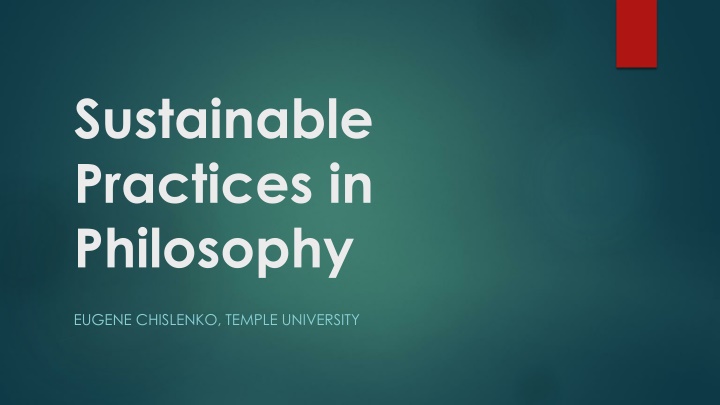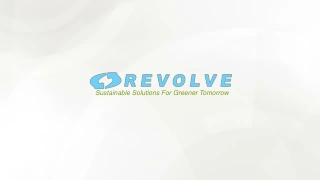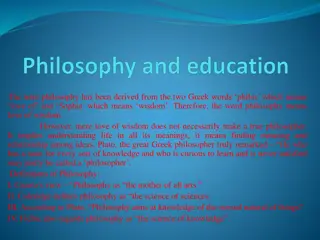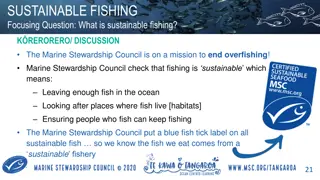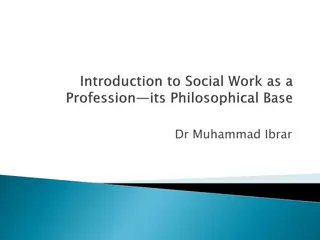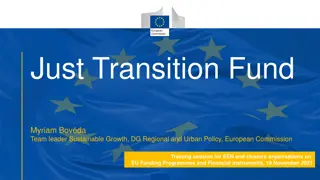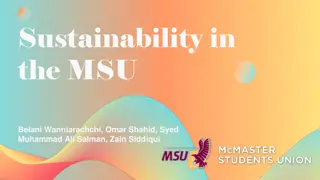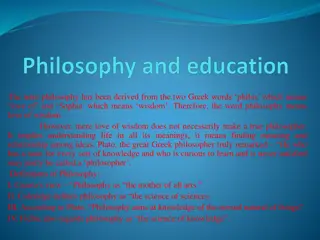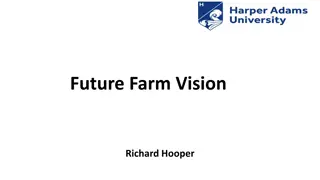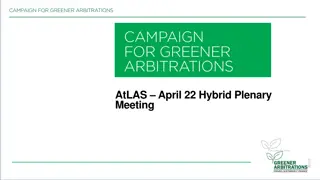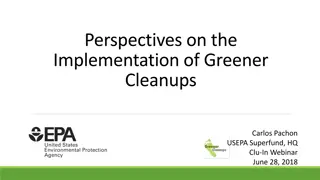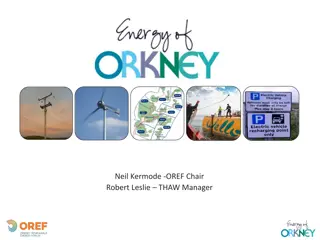Sustainable Practices in Philosophy: Shifting Towards a Greener Future
This workshop led by Eugene Chislenko from Temple University focuses on recent efforts towards sustainable practices within philosophy. It emphasizes the importance of addressing climate change, organizing networks, and advocating for sustainable guidelines in the field of philosophy. The initiative aims to mobilize philosophers for sustainability through critical thinking and collaboration with climate activists.
Download Presentation

Please find below an Image/Link to download the presentation.
The content on the website is provided AS IS for your information and personal use only. It may not be sold, licensed, or shared on other websites without obtaining consent from the author.If you encounter any issues during the download, it is possible that the publisher has removed the file from their server.
You are allowed to download the files provided on this website for personal or commercial use, subject to the condition that they are used lawfully. All files are the property of their respective owners.
The content on the website is provided AS IS for your information and personal use only. It may not be sold, licensed, or shared on other websites without obtaining consent from the author.
E N D
Presentation Transcript
Sustainable Practices in Philosophy EUGENE CHISLENKO, TEMPLE UNIVERSITY
Goals of this workshop 1) To report on some recent efforts toward sustainable practices within philosophy 2) To identify and discuss next steps in shifting our field and the world toward sustainable practices
Some starting assumptions 1) Climate change is real and largely human- caused. 2) Its largest causes are collective entities such as governments and corporations. 3) We have several years to put in place policies that will prevent some of its most catastrophic effects. 4) Social movements are essential.
Young climate activists say: ORGANIZE YOUR NETWORKS How do we do that?
Philosophy and Sustainability Philosophers have years of training in critical thinking, facilitating discussion, and organizing events, needed for adequate responses to climate change. Many philosophers are part of large institutions, have significant class privilege, and could do much more to shift our field and the world toward sustainable practices.
Some efforts Ive been part of Background: An APA lunch with Rebecca Millsop (URI), Jan. 2019, talking about veganism, the new APA Good Practices Guide, the relative lack of interest in climate justice and sustainable practices among philosophers. We decided to start a campaign to advocate for sustainable practices guidelines for philosophers.
Philosophers for Sustainability - A growing global network of philosophers in all subfields, working together toward sustainable practices within and outside philosophy (after two years, 150 philosophers in 17 countries) - Run by young philosophers: Started by grad-school friends (now young faculty); most leaders under 40 - Collaborations with philosophy associations, neighborhood groups, and climate activists
Philosophers for Sustainability - Sustainable Practices Guidelines for philosophers, now adopted by the APA, with translations - Monthly Sustainability in Philosophy forums on topics like racial justice, teaching, advocacy, e- conferencing, and public philosophy (March 24) - Advocacy teams focused on teaching, climate strikes, e-vents, social media, public philosophy
Philosophers for Sustainability - Philosophy and the Climate Crisis conference June 10-12, 2021 - In 2021-22, a wave of local events, forming regional hubs - Free advertising for all initiatives related to philosophy and sustainability philosophersforsustainability@gmail.com https://twitter.com/@phil4sustain http://www.philosophersforsustainability.com/
Lessons and challenges #1: There are a lot of low-hanging fruit. Many philosophers are concerned about climate change, interested in contributing, and not sure where to start. A spark of leadership starts a task force or student org, introduces a new course, or cancels 500 beef sandwiches.
Lessons and challenges #2: Everyone is scared, overworked, and burned out. Strategies: - Focus on integrating climate change into existing research, teaching, and service, rather than adding - Encourage claiming academic CV credit for participation in sustainability initiatives - Lead with kindness: no hate and no guilt trips, including toward yourself
Lessons and challenges #3: People have very different kinds of interest, access, and ways of having an impact. Strategies: - Facilitate collaborative discussion with attention to individual situations. - Use sustainability guidelines as a starting point, to offer many options at different scales.
Possible next steps (collective) 1) Coordinated advocacy campaigns, e.g. for large conferences to become/remain virtual post-pandemic; to support climate strikes; to adopt guidelines 2) A wave of sustainable practices workshops for philosophers 3) Further events, collaborations, and gathering/creating/sharing of resources 4) Begin to form local chapters, with specific local advocacy goals
Possible next steps (individual) 1) Integrate climate change / sustainability into your teaching, research, and/or service 2) Read and implement some sustainability guidelines 3) Tell us about your initiatives and have us advertise them for you 4) Suggest, join, and/or lead a monthly forum (racial justice, political action, teaching, e-vents, public philosophy, etc.; past forums at http://www.philosophersforsustainability.com/our-projects/)
Possible next steps (individual) 5) Join/co-lead an advocacy team (http://www.philosophersforsustainability.com/advocacy- teams/) 6) Help with website / social media (members map, Twitter presence) 7) Write a blog post 8) Lead a local event or part of a faculty meeting
Breakout rooms 2-4 people each, 10 min, with Sustainability Guidelines Please each write down individually: 1) One collective next step you d like to see toward sustainability in your community 2) One individual next step that might be interesting and doable for you 3) One challenge you d like to discuss
Thank you! http://www.philosophersforsustainability.com/ philosophersforsustainability@gmail.com https://twitter.com/@phil4sustain
